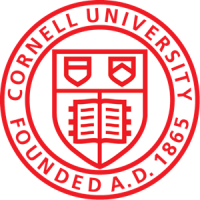Ecosystem-Based Fisheries Management
Dates: November 14-16, 2022
Steering Committee: Leads: Lars Rudstam (Cornell University) and Aaron Fisk (Univesity of Windsor)
CIGLR Research Theme: Healthy Communities
About: Internationally, there is a growing emphasis, and a recognized need, to consider the entire ecosystem when considering management decisions and policies. For fisheries, this emphasis has been expressed as “Ecosystem-based Fisheries Management (EBFM)”, which considers social, economic, and ecological trade-offs across multiple fisheries and habitats. In the Great Lakes, management and policies in Canada and the U.S. are fundamentally driven by an acknowledged ecosystem perspective as outlined in the Great Lakes Water Quality Agreement (GLWQA) and the Great Lakes Fishery Commission Fish Community Objectives (GLFC-FCO). The GLWQA was signed in 1972, amended in 1983, and updated in 2012 to ensure the “chemical, physical, and biological integrity” of the Great Lakes. It is a bi-national agreement between the U.S. and Canada to restore and protect the waters of the Great Lakes. The document contains 10 Annexes, each of which is focused on a particular issue ranging from contaminants, water quality, habitat and species, climate impacts, and science. The emphasis is on prevention, restoration, protection, improvement, and the development of new knowledge within an ecosystem context. Similarly, the GLFC-FCOs provide ecosystem-wide guidelines to achieve long-term sustainability of habitats, food webs, and fisheries. The objectives emphasize fisheries as a focal component, but also recognize the importance of physical, chemical and other biological components on lake health, and the interactive effect of multiple stressors for the management and long-term sustainability of the fisheries.
Frequently there are perceived conflicts between the goals expressed in the GLWQA and those expressed in the GLFC-FCO. One such example is target nutrient loading criteria to reduce the frequency and magnitude of harmful algal blooms (HABs) and hypoxia and maintaining ecosystem health and integrity. However, reduction in nutrients may result in reduction in overall ecosystem and fish production, thereby compromising the ability to achieve the FCOs. Thus, tools are necessary to evaluate the potential tradeoffs, and an ecosystem perspective that considers both becomes essential. Such tools for policy decisions are the topic of this workshop.
A number of recent syntheses have listed knowledge gaps and hypotheses and made recommendations to advance food web investigations that are relevant to Great Lakes EBFM (Ives et al., 2019, McMeans et al., 2016, IJC 2020). These investigations are critical to linking complex multi-trophic level living systems with changes in water quality, habitat, fish stocking, recreational fishing, and commercial fishery management. However, within this context the socio-economic drivers for EBFM have been largely ignored. It is not clear that Great Lakes food web investigators are fully exploiting the integration of these areas, and the methods and data sets available to meet societal information needs. As such the EBFM approach has not been fully realized in practice in the Great Lakes.
To address the above needs, we hosted a workshop to evaluate various tools and methodologies for implementing an EBFM approach, each with its strengths and weaknesses. These include but are not limited to: 1) use of multiple functional indicators for monitoring and tracking ecosystem status, direction and magnitude of ecosystem change over time, and ecosystem response to management activities; 2) multivariate approaches to synthesize and quantify the relationships between ecosystem components from time-series data (e.g., Fraker et al., 2022); 3) various numerical model-based approaches to quantify ecosystem biomass and trophic transfer efficiency; and 4) the implications of socioeconomic and ecological tradeoffs of ecosystem based fisheries management of a stressed ecosystem. These approaches attempt to integrate our understanding of the interconnectedness of the ecosystem components and changes in physical, chemical, biological, and socio-economic drivers; and provide information on historical trends, current status, and projections of food web and fisheries response to management decisions and other factors.
The in-person workshop was held at Cornell Biological Station, Bridgeport, NY with approximately 35-40 participants. Outcomes of the workshop were increased awareness of the potential of cross-basin data sets and resources to inform Great Lakes EBM, and the development of collaborative proposals to address food web knowledge gaps that address priority Great Lakes EBM information needs.
Products:
-
- A report of the workshop listing priority knowledge gaps and priority fisheries management information needs.
- A number of collaborative research pre-proposals, advancing fisheries management relevant food web knowledge, that could be further developed for funding.
- A journal review paper on the priority knowledge gaps and priority fisheries management information needs.

